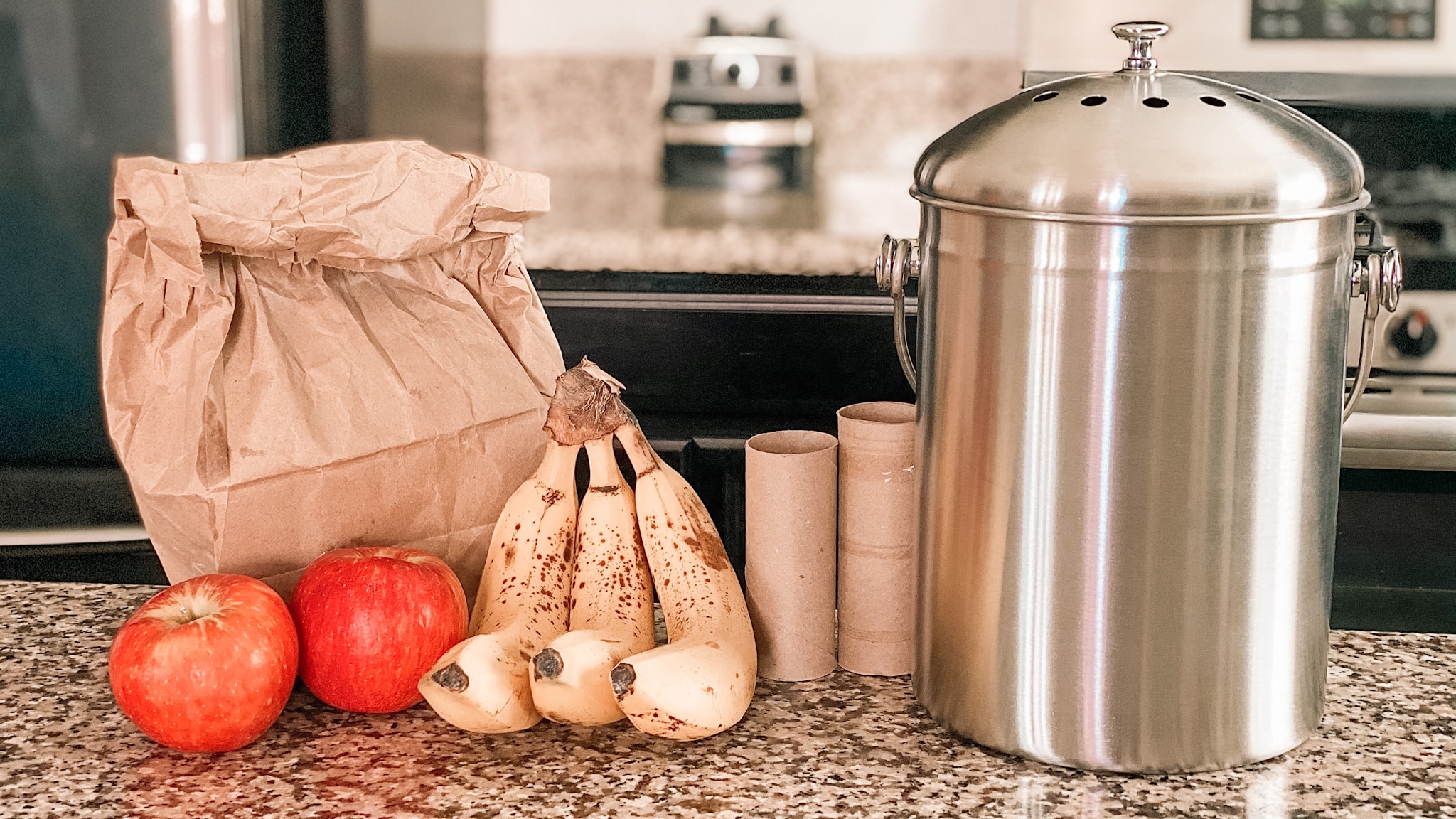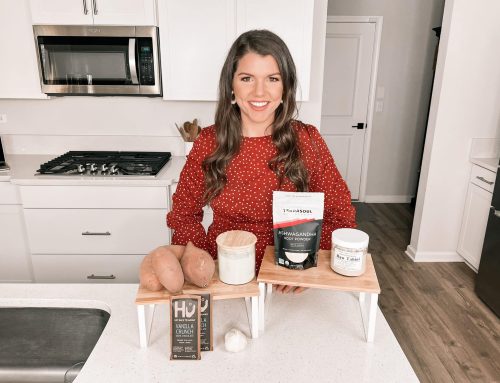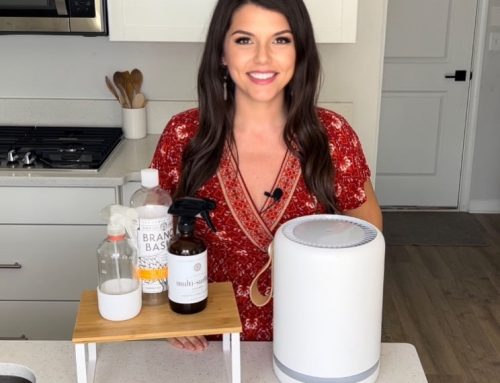
Composting is when organic matter like food scraps and leaves are recycled back into the ecosystem. It helps to enrich soil which provides plants with much more nutrients.
It also helps to keep food out of landfills and waterways which is important for the environment because, once there, it turns into a destructive greenhouse gas called methane.
There's a few ways to take part in composting.
This is the composting bin that I have in my backyard that we dump food scraps and brown items in. Every few days we give it a spin and it will eventually turn into a soil like matter.
Even if you don't have a yard, you can still compost. There's smaller composting bins that you can keep right on your counter. Then, when you've filled it up, there are actually composting communities where you can take it to drop off.
Here in Sacramento there's a compost drop off at the Midtown Farmer's Market on Saturdays where there are bins set up. Re-Soil is the non-profit that puts out and picks up the bins. You can see other drop off locations on their website.
When composting it's important that for every one part of food scraps you have 2 to 4 parts of brown things. This includes things like leaves, grass clippings, brown paper bags and toilet paper rolls.
Here's a list of other things that can be composted.
- Fruit and Vegetable Peels
- Coffee Grounds
- Loose Leaf Tea
- Citrus Rinds
- Old Herbs and Spices
- Juice Pulp
- Old Oats
- Stale Bread
- Peanut Shells
- Dead Flowers
- Used Napkins (best if unbleached)
- Paper Towel Tubes
- Used Paper Coffee Filters
- Pine Needles




